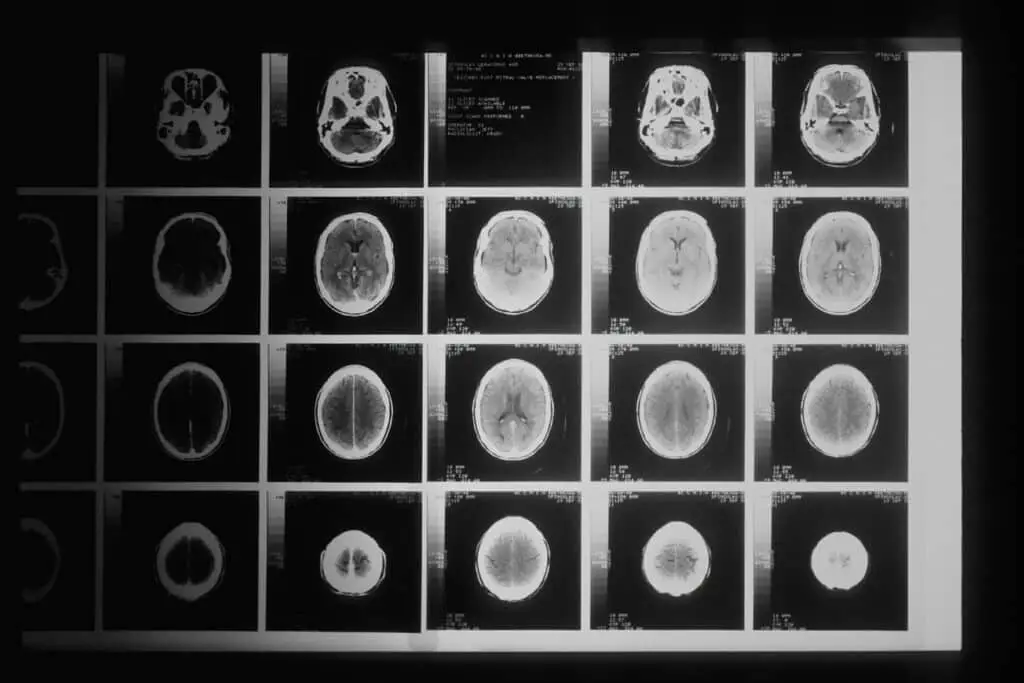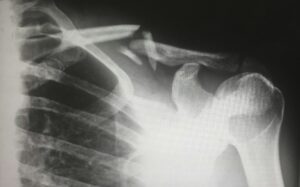Table of Contents
ToggleWhat Is CTE?

CTE stands for chronic traumatic encephalopathy. It is not common in the population as a whole. But for certain people, like athletes and combat veterans, CTE happens much more often.
Doctors can do nothing to stop CTE. They cannot even definitively diagnose it until after it
kills the person suffering from it. And as CTE runs its course, it can cause a range of physical, mental, and emotional symptoms.
Read on to learn about CTE and how you can seek compensation for its effects on you or a loved one.
What Can Cause CTE?
CTE is a degenerative brain disease that results from repeated head trauma. Head trauma does not cause the damage associated with CTE directly. Instead, it triggers a series of changes in the brain that result in CTE.
CTE comes from repeated brain injuries. These brain injuries can include concussions. But patients can also suffer from CTE with less serious brain injuries.
Your brain sits inside your skull, surrounded by cerebrospinal fluid (CSF). The layer of CSF cushions your brain from hitting the inside of your skull.
When you get jostled, your brain sloshes in the CSF. In most situations, the sloshing is harmless. But when you experience rapid acceleration or deceleration, the CSF must exert a lot of pressure on your brain to keep it from hitting your skull.
This pressure can damage your brain. The cell walls of brain cells can rupture and die. Even brain cells that do not die can swell due to the damage caused.
In most cases, these minor brain injuries do not cause any lasting symptoms. Even the most severe symptoms of a concussion, such as memory loss and confusion, will clear up within two months in most situations.
Minor brain injuries do not even cause permanent brain damage in most accident victims. While brain cells do not regenerate, the swelling from damaged brain cells will subside, and your brain will recover.
But repeated brain injuries can cause changes in the brain’s structure, leading to CTE.
Risk Factors for Brain Injuries that Cause CTE
Brain injuries can happen in a few ways, including:
Blunt Trauma
Bumps on the head can cause brain injuries that contribute to CTE. When you bump your head, the brain gets shocked by a pressure wave that prevents your brain from hitting your skull.
Blunt trauma can happen in common accidents, such as a slip and fall. In these accidents, you can hit your head, leading to a brain injury.
The most common cause of CTE is participation in contact sports. Athletes involved in boxing, football, soccer, hockey, and other contact sports have a higher risk of suffering repeated brain injuries.
Acceleration or Deceleration
You do not have to suffer a direct impact on your head to experience a brain injury. Rapid movement can push your brain around inside your skull, causing the CSF to press on your brain to slow it down.
The acceleration that causes brain injuries can result from car accidents. As your body whips back and forth during a collision, your brain can whip back and forth in your skull.
Pressure Waves
The blast from an explosion creates a pressure wave. This pressure wave can compress the CSF and squeeze the brain.
Blast-type brain injuries can happen to military veterans. They can also happen to miners, oil and gas workers, construction workers, and demolition workers.
What Are the Effects of CTE?
CTE is a degenerative brain condition, which means that once it starts, the patient’s condition only worsens. CTE will not go into remission. Doctors cannot cure it or even treat it.
Victims of CTE can undergo therapy to help them cope with the symptoms. But ultimately, they will need a caretaker or skilled nurse to help them meet their daily needs.
Changes in the Brain from CTE
People who suffer repeated brain injuries develop plaque on their brains made of tau proteins. A buildup of tau proteins also happens in other forms of dementia, like Alzheimer’s disease. But in CTE, the tau proteins build up around the brain’s blood vessels, while in Alzheimer’s, the tau proteins build up around the brain cells.
Symptoms of CTE
People with CTE can experience a wide range of symptoms. But most of the symptoms are consistent with other forms of dementia. In fact, people who suffer repeated head trauma early in life are two to four times more likely to develop some form of dementia, including CTE, later in life.
Symptoms of CTE include:
- Confusion
- Memory loss
- Impaired judgment and poor decision-making
- Aggression
- Depression
- Suicidal thoughts
- Changes in personality
- Tremors
CTE has been discussed heavily in the media because of the links between CTE and violent behavior by football players. Professional football players suffering from CTE have committed assaults, sexual assaults, and even murder. They have also committed suicide.
Getting Compensation for CTE
Doctors diagnose CTE by examining the brain for tau protein tangles near the brain’s blood vessels. Doctors are close to developing techniques to capture images of the brain that show tau protein tangles. But currently, they can only diagnose CTE by dissecting the brain after the patient’s death.
Instead, they use the patient’s symptoms and medical history prior to death to provisionally diagnose CTE during the patient’s lifetime. This can help the patient seek compensation for their condition.
Victims of CTE have used a few legal theories for seeking compensation for its effects, including:
- Inadequate warnings about the risks of brain injuries
- Defective safety equipment that increased the risk of brain injuries
- Work-related injuries that are eligible for workers’ comp benefits
These theories have helped patients with CTE pursue medical and disability benefits and damages for pain and suffering.
CTE has devastating and fatal results. A CTE patient can lose their physical and mental faculties. They can even lose their personalities. While injury compensation cannot restore a victim’s health, it can make their lives more comfortable and ensure their daily needs get met.
Contact Our Brain Injury Law Firm in Los Angeles, CA
If you were injured in an accident in Los Angeles, CA or you lost a loved one and you need legal assistance, please contact us to schedule a free consultation. One of our Los Angeles brain injury lawyers at M&Y Personal Injury Lawyers will get in touch with you soon.
M&Y Personal Injury Lawyers – Los Angeles Office
4929 Wilshire Blvd Suite 960,
Los Angeles, CA 90010
866-864-5477




